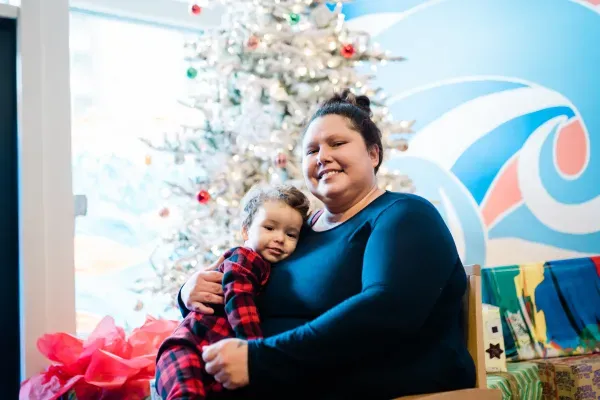A recent release from Statistics Canada has laid out the numbers: Canadians have felt the squeeze of inflation this year. Costs have gone up on everything from groceries to gas. No matter the demographic, people are having to do more with less — and young people and low-income households are being hit the hardest.
- Households in every income bracket increased their spending on food, accommodation, clothing, and transport.
- Families and individuals in the bottom 20% of incomes saw their disposable income decline by 5.7%
- The average disposable income for people under 35 is down 2.6%.
For people struggling to secure affordable housing or consistent employment, inflation adds another layer of stress to any already stressful situation.
“When it comes to inflation and rising prices, we’re all in the same boat in that we are all affected. But for those who are surviving on low incomes, it’s more like we’re all in the same storm, but their boat is a rubber dinghy.” - Demetrius Schwab, Supervisor of Case Management and Shelter at UGM

What Inflation Looks Like at Union Gospel Mission
Here at UGM, we’ve been seeing the outcome of people not having enough. More families have been requesting hampers and grocery gift cards, and shelter beds have been consistently full. For people on fixed incomes, changes like the ones we’ve seen this year can mean the difference between having enough and going hungry.
As much as we try, UGM isn’t immune to economic shifts either. While our community members are invited to enjoy a warm meal at any of our centres free of charge — as always — the average amount it costs for UGM to prepare and serve a meal has increased from $3.29 to $5.45. This change highlights how essential it is that we support each other in making ends meet. “We’re committed to connecting people with what they need to thrive—and oftentimes that starts with a meal,” says President Dean Kurpjuweit. “We’re also feeling the effects of inflation, and it’s important that we are truthful about the realities that our community members are facing.”

6 Steps You Can Take to Slow Inflation’s Impact
Many of the individuals and families we serve in Metro Vancouver can’t simply tighten their budgets or slow down their saving — most inflation-reducing measures require having disposable income to begin with. But if you are living above the poverty line, there are several steps you can take to weather seasons of high inflation.
- Take a thorough look at your budget. The percentage of people who keep a budget rises during times of high inflation, and for good reason. Budgeting can help to identify what items on your spreadsheet are wants rather than needs. If planning in advance is not to your tastes, try the reverse: track your expenses for a month and see where you tend to spend without thinking.
- Become an expert on sales. If you tend to ignore grocery store flyers, now might be the time to flip through. Planning meals and shopping trips according to sales can help lower your overall spending. Price matching, thrifting, and comparison shopping can all be effective methods of stretching your dollars.
- Tap into employee benefits. Does your employer offer a savings plan or RRSP matching? Do you have health coverage sitting idle? Automating your saving — and timing purchases like glasses and elective treatments to your health plan — can keep your financial goals on track even during thin times.
- Where possible, pay down debt. What was a manageable debt before inflation can quickly become something else entirely when variable rates change. Assess your line items and address debts with the highest interest rates first.
- Build up your emergency fund. While it can feel counterintuitive to try and put money aside when it’s in high demand, having a small cushion can turn a burst pipe or a blown tire into an inconvenience rather than an emergency. It can also keep you from heading into debt (see above).
- See where you can substitute one experience for another. Hoping to take a vacation but flight prices have spiralled out of control? What interests you that’s local? Maybe that VR headset has to wait, but would a trip to an escape room fit in your budget? Even if you’re opting for a Plan B, fun is relative: getting creative with lateral moves can see you through the inflation squeeze.

Where You Can Make a Difference
When we’re all feeling the impacts of a turbulent economy, it can be tempting to freeze up — or lock down. These kinds of responses make sense: the majority of financial advice at the moment is recommending revised spending habits and shopping for sales. Charitable giving can feel like an afterthought.
Here at UGM, we’re making our own adjustments to continue to serve our community members — giving out more care hampers than ever before, and going the extra mile to ensure people can find a bed, a warm meal, or a welcoming community. Together, we can stretch the little we have into something greater. Maybe you have just enough to give someone a warm meal. Maybe you would like to share the joy of the holidays with families beyond your immediate circle. In seasons of uncertainty, these gestures mean more than ever.
No matter what side of the inflation line you fall on — whether you have plenty or little — we hope that the many stories of transformation from UGM community members will lift your spirits. They’re a timely reminder that together, we have enough.


